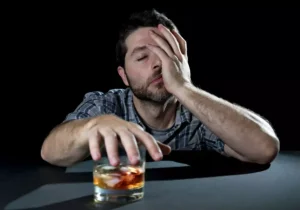
During the Olympics that year, the Danish cyclist Knud Enemark Jensen collapsed and died while competing in the 100-kilometer (62-mile) race. An autopsy later revealed the presence of amphetamines and a drug called nicotinyl tartrate in his system. Drug abuse in athletes is a significant problem that has many potential underlying causes. The drive to be the best in sport dates to ancient times, as does the use of performance-enhancing substances.
AAA Health Inc

The violations have affected every team in the league and every position on the field, including players who have been named to the Pro Bowl and even long snappers, quarterbacks and at least one placekicker. Anti-doping rules limit the substances that athletes can use to reach peak performance. Anabolic steroids can help weightlifters to lift heavier and erythropoietin can help distance runners to run faster.
Alcohol and Drug Rehab Centers in New York

Similarly, athletes who receive support from public entities may feel the need to provide a return on that investment through medals or other victories, leading to a willingness to take more risks. Taken together, anti-doping policies and culture set up an anomic environment in which athletes are incentivized to dope while also being at risk of a range of negative outcomes if they are caught. It then becomes imperative that athletes avoid detection, a situation that can be tricky for an individual athlete to manage on their own. The physical and psychological adverse effects of anabolic androgenic steroids (e.g., kidney and liver damage, acne, gynecomastia, suppression of normal testosterone production, aggression, depression) are well established. What physicians may not recognize are the potential adverse effects of novel, investigational drugs that are being used as doping agents. These include selective androgen receptor modulators (e.g., the investigational drugs ostarine [Enobosarm] and LGD-4033 [Ligandrol]), which have substantial anabolic effects on muscle and bone and significant potential for misuse in sports.
- Information from one study showed that more than four out of every five student-athletes who participated in the survey admitted to using alcohol.
- It is important to relay that none of these studies presently look at athletes but this review attempts to lay out some data to support further evaluating such treatments in this distinct population.
- Previously there was no testing between 11pm and 6am, providing a potential window of opportunity for micro-dosing products, such as EPO, without being caught.
Doping and anti-doping

Yet, other mere mortals can tolerate far less physical exertion and pain and dread even the thought of those efforts. The desire to diminish painful elements of athletic competition is a common goal. drug use in sports They slow the heart rate, reducing blood pressure, anxiety and muscle tremors. This may improve the performance of athletes who need a steady hand, such as in archery, shooting, darts and golf.
Drugs In Sport and Addiction
- However, the discrepancy between the positive test rate and even the lowest prevalence estimates indicate that a large number of athletes who report engaging in doping are not being detected, potentially exacerbating PED-driven inequalities between athletes.
- The USA TODAY Sports database only includes suspensions that have been publicly revealed.
Proponents of allowing athletes to techo-dope argue that the advancements could push the sports and athletes in interesting ways, and that audiences not only don’t oppose new technology, but will be excited to see sports and athletes play a reinvigorated game. Blood doping can present the athlete with the risk of diseases such as HIV, hepatitis B, and C. Even with the athlete’s blood, there are still risks, such as blood clots, stroke, and heart attack. General side effects include acne, inhibited growth in teenagers, hypertension, liver tumors, and psychiatric disorders.
The organisers did, however, introduce measures to ensure fair starting conditions and punished athletes caught cheating and using illegal tactics. These substances were not off limits back then, and instead were overlooked and considered to be part of the scientific method of the https://ecosoberhouse.com/ culture. The original version of the Games saw athletes come together every four years to battle for fame, prestige and riches. Since the days of Leonidas of Rhodes (the Usain Bolt of Ancient Greece), athletes have been trying to get an extra edge, especially at the Olympics.
It is important that tests are conducted by independent organizations that treat each athlete equally, indifferent of fame or nationality. “There is a zero tolerance to the abuse of doping in my sport and I will maintain that to the very highest level of vigilance,” he said. Former Olympic 1500m champion Lord Coe was named the new president of the IAAF on Wednesday and says he is determined to prove athletics’ world governing body is committed to ridding the sport of drug cheats.
- A major drug scandal at the 1998 Tour de France, external underlined the need for an independent international agency to set standards in anti-doping work.
- Many athletes may be hesitant to using any treatment that was not FDA approved due to fears of violating the rules by which their sports are governed.
- In addition to severe adverse health effects, drug misuse can lead to legal trouble, suspensions from sports, and even a fatal overdose.
